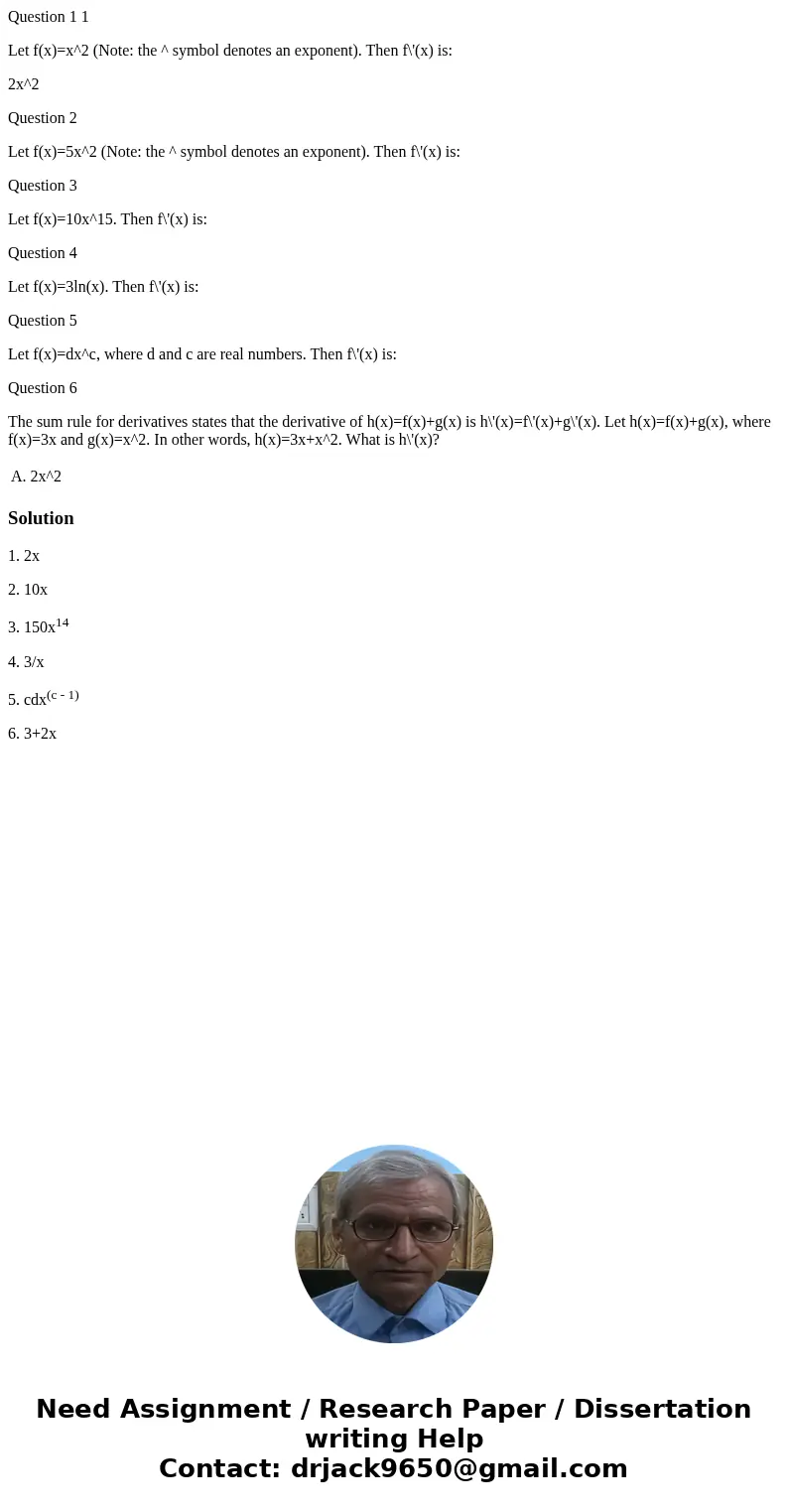Question 1 1 Let fxx2 Note the symbol denotes an exponent T
Question 1 1
Let f(x)=x^2 (Note: the ^ symbol denotes an exponent). Then f\'(x) is:
2x^2
Question 2
Let f(x)=5x^2 (Note: the ^ symbol denotes an exponent). Then f\'(x) is:
Question 3
Let f(x)=10x^15. Then f\'(x) is:
Question 4
Let f(x)=3ln(x). Then f\'(x) is:
Question 5
Let f(x)=dx^c, where d and c are real numbers. Then f\'(x) is:
Question 6
The sum rule for derivatives states that the derivative of h(x)=f(x)+g(x) is h\'(x)=f\'(x)+g\'(x). Let h(x)=f(x)+g(x), where f(x)=3x and g(x)=x^2. In other words, h(x)=3x+x^2. What is h\'(x)?
| A. | 2x^2 |
Solution
1. 2x
2. 10x
3. 150x14
4. 3/x
5. cdx(c - 1)
6. 3+2x

 Homework Sourse
Homework Sourse